
For our 2024 rankings, the research team at Nursing Schools Almanac collected data on nearly 3,000 nursing schools and campuses throughout the United States. We evaluated each school on three dimensions:
- The institution’s academic prestige and perceived value
- The breadth and depth of nursing programs offered
- Student success, particularly on the NCLEX licensure examination
We then combined these assessments into an overall score and ranked the schools accordingly. For a detailed description of our assessment methodology and dimension weights, please see here.
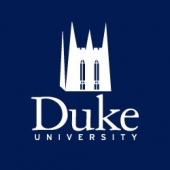
#1: Duke University
The National League for Nursing has designated the Duke University School of Nursing (DUSON) a Center of Excellence on six separate occasions. The school consistently ranks among the best in the nation in U.S. News & World Report’s top MSN and DNP programs. Indeed, DUSON was the first school in North Carolina to offer the doctor of nursing practice degree. Duke also graduates 120-150 students each year from its accelerated bachelor of science in nursing program. These students have passed the NCLEX exam at a stellar 98% first-attempt rate over the past decade.

#2: University of North Carolina at Chapel Hill
The UNC School of Nursing was the first in the state to offer a four-year BSN, an MSN degree, a nurse practitioner program, and a doctor of philosophy in nursing. The school, which also offers RN-to-BSN, DNP, and post-master’s certificate programs, consistently ranks among the top ten in the nation on two separate U.S. News & World Report lists (best MSN programs, best DNP programs). The traditional BSN program graduates a class of approximately 175 students annually, who have passed the NCLEX licensure exam at a stellar 96% first-try rate over the past decade.

#3: East Carolina University
East Carolina University has garnered four consecutive Center of Excellence designations from the National League for Nursing. The ECU College of Nursing offers traditional BSN, accelerated BSN, and RN-to-BSN pathways, plus the innovative Eastern North Carolina Regionally Increasing Baccalaureate Nurses program. This initiative dually admits students to ECU and one of six local community colleges that partner with the university. The College of Nursing graduates approximately 250 prelicensure BSN students each year, with a phenomenal 97% first-time NCLEX pass rate over the past seven years. ECU also offers a breadth of graduate nursing options including MSN, DNP, and PhD programs.
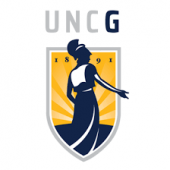
#4: University of North Carolina at Greensboro
The UNCG School of Nursing has earned five consecutive NLN Center of Excellence designations for promoting the pedagogical expertise of faculty. The school offers three undergraduate pathways: traditional four-year BSN, RN-to-BSN, and BSN as a second degree. UNCG graduates more than 100 prelicensure BSN students annually, who have averaged a 92% first-time NCLEX pass rate over the past decade. The school’s online MSN program is consistently ranked among the top twenty nationwide by U.S. News & World Report. UNCG also offers a dual MSN / MBA degree and very selective DNP and PhD programs.
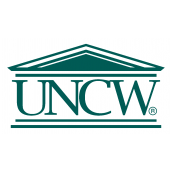
#5: University of North Carolina Wilmington
The UNC Wilmington School of Nursing has 1,000 current students and more than 2,100 alumni in North Carolina alone. Undergraduates can pursue a traditional prelicensure BSN, an online RN-to-BSN program, or a unique Bachelor of Science in Clinical Research degree – one of just four such programs in the United States. UNC Wilmington’s prelicensure BSN students have enjoyed a strong 95% first-time NCLEX pass rate over the past decade. The school’s graduate offerings include an MSN with family nurse practitioner and nurse educator tracks, a Master of Science in Clinical Research & Product Development degree, and a DNP program with post-BSN and post-MSN pathways.

#6: University of North Carolina at Charlotte
The UNC Charlotte School of Nursing has posted a 92% NCLEX pass rate among BSN graduates over the past seven years. Just as impressively, recent MSN cohorts – including the adult-gerontology acute care nurse practitioner track – have achieved a 100% pass rate on their certification exams. In addition to traditional BSN, MSN, and DNP degrees, UNC Charlotte leads an interdisciplinary collaborative PhD program in the College of Health and Human Services. The school also offers an online RN-to-BSN completion program, a Regionally Increasing Baccalaureate Nurses (RIBN) option in partnership with local community colleges, and several post-master’s and graduate certificates.
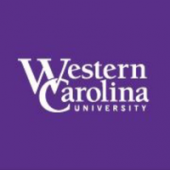
#7: Western Carolina University
The School of Nursing at Western Carolina University offers a breadth of nursing pathways. Options include four BSN programs (traditional, accelerated, RN-to-BSN, RIBN), an MSN degree, a DNP in nurse anesthesia, and a post-master’s DNP conducted in partnership with UNC Charlotte. Graduates of the traditional and accelerated BSN programs have achieved a phenomenal 98.5% first-time NCLEX pass rate over the past decade. The RIBN program provides students with a seamless four-year, associate-to-baccalaureate nursing education. Unlike in a traditional BSN program, RIBN students can begin working as an RN during their fourth year of study. The MSN program has specialty tracks in family nurse practitioner, nurse educator, and nursing leadership, with the final two options offered online.

#8: Gardner-Webb University
The Hunt School of Nursing at Gardner-Webb University is part of the College of Health Sciences. The school offers several levels of nursing education including an associate degree, three pathways to a bachelor’s degree (traditional, accelerated second degree, RN-to-BSN), a master’s degree with two specialty tracks (education, administration), and a doctor of nursing practice with three pathways (post-master’s, family nurse practitioner, psychiatric-mental health nurse practitioner). In addition, the Hunt School of Nursing offers graduate certificates in both MSN specialty areas and post-doctoral certificates in both nurse practitioner specialty areas. Undergraduates consistently perform well on their licensure exams. ADN graduates have averaged a 90% pass rate on the NCLEX exam over the past seven years, while their counterparts in the BSN program have scored an exceptional 97% pass rate during that timeframe.

#9: Wake Forest School of Medicine
Wake Forest School of Medicine has doctoral degree options in nurse anesthesia and nursing leadership. Wake Forest has provided nursing education since the 1920s, with the nurse anesthesia program in continuous operation since 1942. The nurse anesthesia DNP is fully accredited by the Council on Accreditation. The curriculum follows one year of fulltime distance learning with two years of onsite education, including frequent clinical instruction. The nursing leadership DNP is open to any registered nurse with a master’s degree, even if it is not in nursing. This fully online program includes health law elective credits taken within Wake Forest School of Law.

#10: Queens University of Charlotte
The Presbyterian School of Nursing at Queens University of Charlotte offers both BSN and MSN degree programs. The BSN has three pathways: a traditional track, an accelerated second degree option, and an online RN-to-BSN degree completion program. The traditional and accelerated tracks are designed for students without a nursing license. These prelicensure programs graduate 70-90 students in total each year, with a stellar 96% first-time NCLEX pass rate over the past five years. The online RN-to-BSN program just recently launched in the fall of 2018. Queens University’s online MSN program has three specializations: clinical nurse leader, nurse administrator, and nurse educator.
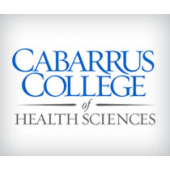
#11: Cabarrus College of Health Sciences
Cabarrus College of Health Sciences is home to the Louise Harkey School of Nursing. The school offers a pre-nursing track, an ADN program, and an RN-to-BSN program. The pre-nursing track includes two semesters of general coursework, and admitted students are guaranteed a space in the ADN program. The ADN prepares students to take the NCLEX licensure examination and assume entry-level employment as registered nurses. Cabarrus typically graduates 60-80 ADN students annually, with an excellent 94% first-time NCLEX pass rate over the past seven years. The RN-to-BSN is an online program designed for registered nurses who are seeking to expand their skills or prepare for graduate-level nursing education.
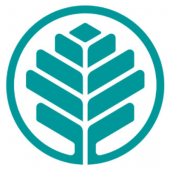
#12: Carolinas College of Health Sciences
In just over a quarter of a century, Carolinas College of Health Sciences has become one of the most highly regarded nursing schools in North Carolina. The college offers three nursing programs: a brief 150-hour nurse aide certification, a five- to six-semester associate degree in nursing, and an online RN-to-BSN completion pathway. Students enjoy a small-school academic environment, with access to world-class clinical experiences at Atrium Health’s Carolinas Medical Center and its multidisciplinary Carolinas Simulation Center. Every nursing faculty member has at least a master’s degree in the field, and many hold specialty certifications. Not surprisingly, the college’s ADN graduates have passed the NCLEX licensure exam at a 95% first-try rate over the past eight years, one of the strongest pass rates in the state. Several recent cohorts have achieved an NCLEX pass rate of 98% or higher. Approximately 90% of ADN students take a position with Atrium Health upon graduation; all ADN students also receive conditional admission to the RN-to-BSN program.
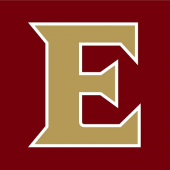
#13: Elon University
The School of Health Sciences is one of seven colleges and schools at Elon University. Within this school sits the Department of Nursing, which offers a BSN degree with two options: traditional and accelerated. The traditional BSN program is open to high school graduates, and it requires four years of fulltime study. The accelerated BSN program is designed for individuals with a bachelor’s degree in any field, and it requires just 16 months of fulltime study. Students in both tracks receive hands-on learning in state-of-the-art facilities, simulation spaces, and a human donor lab. They can also take advantage of clinical opportunities at top area hospitals and interprofessional education opportunities with physician assistant and physical therapy students. Upon completion of the Elon nursing program, graduates are prepared to sit for the NCLEX-RN licensure examination.
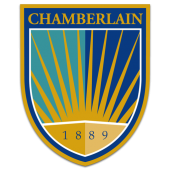
#14: Chamberlain University
Chamberlain University’s Charlotte campus is one of the newest additions to the Chamberlain family. The school’s first campus in North Carolina offers a three-year prelicensure BSN program that consists of 129 credit hours, including 69 credit hours in nursing and 60 credit hours in the liberal arts and sciences. Students will obtain hands-on experience in both the Chamberlain SIMCARE Center and on-site clinical settings. These experiences allow students to work side-by-side with faculty, mentors, peers, and experienced professional nurses as they refine their skills in nursing and direct patient care. Since the BSN program’s recent launch in Charlotte, graduates have achieved a 92% first-time pass rate on the NCLEX licensure examination.

#15: Appalachian State University
The Department of Nursing at Appalachian State University offers traditional BSN, RN-to-BSN, and MSN programs. The traditional BSN is a prelicensure program that prepares students to practice as nurse generalists in a variety of healthcare settings. Appalachian State University’s traditional BSN students have scored a 92% first-time NCLEX pass rate over the past seven years, including a perfect 100% pass rate in both 2018 and 2019. The RN-to-BSN pathway is designed for registered nurses who possess an ADN or diploma and wish to earn a BSN degree. The MSN curriculum has a nurse educator concentration that prepares students for leadership roles in nursing education. MSN students engage in primarily online learning environments.

#16: Lenoir-Rhyne University
The School of Nursing at Lenoir-Rhyne University offers three undergraduate pathways, as well as an MSN program that can be completed entirely online. The three undergraduate pathways are a traditional prelicensure BSN, the Regionally Increasing Baccalaureate Nurses (RIBN) program, and an RN-to-BSN bridge. The traditional prelicensure program graduates 25-40 students annually. These students have averaged an impressive 94% pass rate on the NCLEX-RN licensure exam over the past six years. The RIBN program provides a four-year nursing option that concurrently enrolls students in a community college (where they obtain their ADN) and a university (where they later complete their BSN). The RIBN program started in 2010, and it has since expanded to include several regional partnerships across the state.
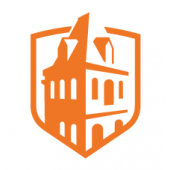
#17: Campbell University
The Catherine W. Wood School of Nursing at Campbell University offers a traditional BSN program that prepares students for initial licensure as a registered nurse. The first two years of the program provide a broad science and liberal arts foundation, enabling students to develop clinical judgments, challenge assumptions, visualize a systems approach, and appreciate diversity and professionalism. In the final two years, clinical experiences greatly enhance the classroom didactic content. The school’s curriculum covers a breadth of nursing topics including adult health, gerontology, human anatomy, informatics, mental health, pharmacology, population health, and women’s health. Since the program’s recent launch, graduates have achieved a 96% first-time pass rate on the NCLEX licensure examination.
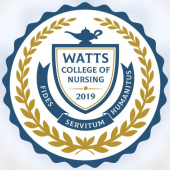
#18: Watts College of Nursing
Tracing its roots back to 1895, Watts College of Nursing is the oldest continuously running nursing program in North Carolina. The school has historically offered a unique curriculum that enabled students to earn both an RN diploma from Watts and an associate of science degree in health science from the University of Mount Olive. This diploma program graduated its final class in December 2021. In its stead, Watts recently launched a new BSN degree program that admits two cohorts annually, one in January and one in August. The BSN program is a candidate for initial accreditation by the Accreditation Commission for Education in Nursing. Over the past seven years, Watts graduates have averaged a stellar 94% first-time pass rate on the NCLEX-RN licensure examination.

#19: Northeastern University - Charlotte
Northeastern University’s Charlotte campus offers a range of executive-level degree programs, including an education doctorate and master’s degrees in several business and technology fields. One of the campus’s newest offerings is an accelerated BSN program. Offered by Northeastern’s Bouvé College of Health Sciences, the accelerated BSN is a fulltime 67-credit program that provides three convenient start dates per year. The program blends online courses, hands-on learning at the school’s state-of-the-art nursing center in uptown Charlotte, and clinical practice at premier healthcare facilities in the metropolitan area. Coursework covers topics like cultural diversity, nursing informatics, and evidence-based practice that are critical to success in today’s healthcare environment. Since the BSN program’s recent launch in Charlotte, graduates have achieved an 86% first-time pass rate on the NCLEX-RN licensure exam.
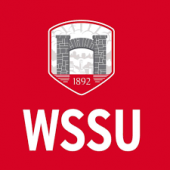
#20: Winston-Salem State University
Winston-Salem State University’s Division of Nursing has a BSN program with five pathways: traditional, accelerated, paramedic-to-BSN, LPN-to-BSN, and RN-to-BSN. The accelerated pathway is designed to give individuals with a bachelor’s degree in another discipline an opportunity to complete the BSN in just 13 months. The paramedic-to-BSN pathway provides advanced standing to licensed EMTs who possess at least one year of paramedic experience, and the LPN-to-BSN pathway provides similar advanced standing for licensed practical nurses. Over the past seven years, BSN graduates have achieved a solid 89% first-time pass rate on the NCLEX-RN licensure exam. WSSU also offers an MSN degree for aspiring family nurse practitioners and nurse educators, as well as a DNP program that prepares students for the certification exams administered by the American Nurses Credentialing Center and the American Academy of Nurse Practitioners.
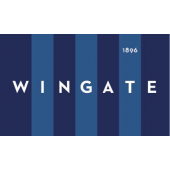
#21: Wingate University
Wingate University offers a prelicensure BSN that features small class sizes, close relationships with area hospitals, and the opportunity to gain real-world experience in a clinical setting. Students in the program can add a minor, such as sociology, which prepares them for success as a public health nurse. Alternatively, students who hone their science skills and have an interest in the law could pursue a career as a forensics nurse. The curriculum also prepares students for potential graduate study in an advanced degree program. BSN graduates from Wingate University have achieved an impressive 98% first-time pass rate on the NCLEX-RN licensure exam over the past four years.
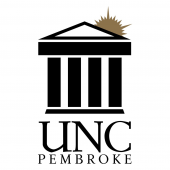
#22: University of North Carolina at Pembroke
The UNC Pembroke Department of Nursing has three undergraduate pathways: a traditional prelicensure BSN degree, an RN-to-BSN bridge program, and the dual-enrollment Regionally Increasing Baccalaureate Nurses option. The traditional BSN consists of 62 semester credit hours of lower-division work, including liberal arts and nursing prerequisites, and 62 semester credit hours of upper-division work in the nursing major. Graduates of the traditional BSN program have averaged a 91% first-time pass rate on the NCLEX-RN licensure exam over the past seven years. At the graduate level, UNC Pembroke offers an MSN degree with concentrations for aspiring clinical nurse leaders, nurse educators, and rural case managers.
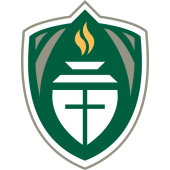
#23: University of Mount Olive
The University of Mount Olive offers two pathways to a BSN degree: a campus-based prelicensure program and a 100% online RN-to-BSN completion program. The prelicensure BSN has two options: The daytime track accommodates fifty residential or commuter students, while the “fast-track” format accommodates fifty commuter students who complete didactic courses in the evenings and clinicals on weekends. The RN-to-BSN curriculum is designed for licensed and practicing RNs, and it consists of three sections: general education, core requirements, and community nursing experience. This accelerated program – most courses are only five weeks in length – can be completed on either a fulltime or part-time schedule. The university also conducts an MSN degree with concentrations in nursing administration and nursing education, plus an additional dual concentration option across both areas. The MSN curriculum is delivered in an asynchronous online format, allowing students to complete the program in as little as four consecutive semesters.
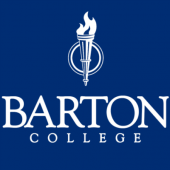
#24: Barton College
The School of Nursing at Barton College houses the Judy Howard Hill Nursing Program. Students can earn a traditional BSN, RN-to-BSN, or MSN degree. The BSN pathways feature partnership and cooperative agreements with more than twenty facilities and agencies, many of which offer tuition remuneration or pay competitive salaries during the externship experience. Between twenty and forty students graduate annually from the prelicensure BSN program. These students have posted an 80% first-time pass rate on the NCLEX-RN licensure exam over the past seven years. The MSN degree prepares students for roles in either nursing administration or post-secondary nursing education. It is designed to be completed in just two years of fulltime study.
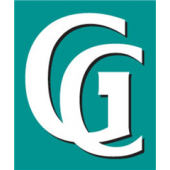
#25: Gaston College
Gaston College’s Health and Human Services Department offers an LPN diploma, a traditional ADN pathway, and an LPN-to-RN bridge program. The LPN diploma and LPN-to-RN bridge program each take three semesters to complete, while the traditional ADN program requires five semesters of continuous study. Student outcomes are strong across all nursing programs. associate degree candidates have averaged a 95% NCLEX-RN pass rate over the past seven years, while LPN students have earned a stellar 99% NCLEX-PN pass rate during that timeframe. Gaston College also partners with Lenoir-Rhyne University to offer the Regionally Increasing Baccalaureate Nurses program. This four-year cooperative allows students to receive an associate degree from Gaston College in year three and a bachelor’s degree from Lenoir-Rhyne University in year four.

#26: Sandhills Community College
The nursing program at Sandhills Community College features a 5,000-square-foot Center of Learning and Simulation, colloquially known as CoLaS. This facility actually consists of three distinct centers: the Primary Simulation Center, the Family Life Center, and the Pediatric Center. Nursing students at Sandhills Community College can pursue either a traditional ADN program or an LPN-to-ADN bridge option. Approximately sixty students graduate annually across the two pathways. Over the past seven years, these students have averaged an outstanding 93% first-time pass rate on the NCLEX-RN licensure exam. Sandhills Community College also partners with the University of North Carolina at Pembroke to provide students a four-year pathway to the BSN degree, known as the Regionally Increasing Baccalaureate Nurses program.
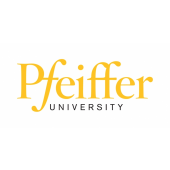
#27: Pfeiffer University
The Division of Applied Health Sciences at Pfeiffer University offers two pathways for nursing students: a prelicensure BSN program and an online RN-to-BSN bridge. The prelicensure BSN is a traditional four-year program that includes both classroom instruction and clinical experience. The curriculum covers a breadth of nursing topics including community health, adult care, and pharmacology. Over the past five years, prelicensure BSN students have scored an 86% first-time pass rate on the NCLEX-RN examination. The RN-to-BSN pathway is a 120-semester-hour program designed for working nurses who seek flexibility and convenience. Coursework covers the topics of health assessment, health promotion, and nursing leadership.
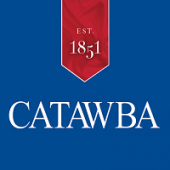
#28: Catawba College
The Department of Nursing at Catawba College offers two options: a daytime prelicensure BSN program and an evening RN-to-BSN program. The prelicensure BSN is designed for individuals with no prior nursing education or experience. Applicants must be high school graduates and complete prerequisite courses like anatomy, physiology, microbiology, and chemistry before gaining admission to the program. The RN-to-BSN is designed for registered nurses looking to broaden their career options or prepare for graduate study. Students complete coursework on a broad range of baccalaureate topics including nursing practice, holistic health assessment, nursing leadership, and nursing management.
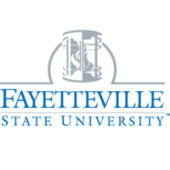
#29: Fayetteville State University
Fayetteville State University’s nursing program traces its roots back to 1992, when the university first launched a joint partnership with UNC Pembroke. Today, the FSU School of Nursing offers both a prelicensure BSN and an RN-to-BSN bridge program. The curriculum covers a breadth of topics including community nursing, nursing research, pediatrics, nursing theory, health assessment, and nursing ethics. Students also receive extensive hands-on training, both in laboratories with state-of-the-art simulators and in guided clinical settings. Prelicensure BSN students have achieved an impressive 96% first-time pass rate on the NCLEX exam since the program’s inception. They also boast a 100% job placement rate after graduation.
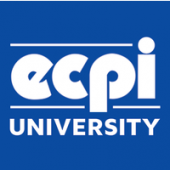
#30: ECPI University
ECPI University’s College of Nursing offers year-round programs that allow students to complete their LPN diploma or RN associate degree in just 15 or 18 months, respectively. ECPI offers the LPN diploma at all three of its North Carolina campuses. Collectively, LPN students have averaged an 87% first-time pass rate on the NCLEX-PN licensure examination over the past seven years. ECPI also offers the associate degree at its Charlotte and Raleigh campuses. The ADN curriculum prepares students for entry-level registered nurse positions at hospitals, primary care clinics, and private practices. Comprehensive coursework includes topics like acute care, medical-surgical nursing, pharmacology, and a breadth of other subjects. ADN graduates have scored a strong 90% NCLEX-RN pass rate since the program’s inception.
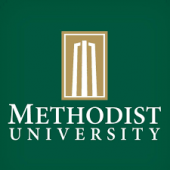
#31: Methodist University
Methodist University’s Department of Nursing has a BSN program that prepares students to provide patient-centered care, work with interdisciplinary teams, and address critical issues in today’s ever-changing healthcare industry. Coursework covers a breadth of critical topics including nursing care fundamentals, nutrition for health and healing, and pharmacotherapeutics. The clinical component of the program begins in the student’s junior year and ends after the spring semester of senior year. Upon completion of the program, graduates are prepared to take the NCLEX licensure examination. Since the launch of Methodist University’s prelicensure program, BSN students have averaged an 80% first-time NCLEX pass rate, including an impressive 96.6% pass rate in 2018.

#32: Surry Community College
Surry Community College offers several prelicensure pathways into the nursing profession, including a practical nursing diploma and two entry points for the associate degree (traditional and LPN-to-ADN bridge). The college graduates 30-60 ADN students annually. Over the past decade, these students have scored a solid 93% first-time pass rate on the NCLEX-RN licensure exam. LPN graduates have an even more impressive track record: nine consecutive cohorts have scored a perfect 100% first-time pass rate on the NCLEX-PN licensure exam. In addition to its standalone offerings, Surry Community College partners with Lees-McRae College to provide students an affordable and accessible pathway to the BSN degree. This collaborative, known as the Regionally Increasing Baccalaureate Nurses program, offers both traditional and LPN-to-BSN tracks.
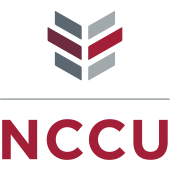
#33: North Carolina Central University
North Carolina Central University’s Department of Nursing offers several pathways to a BSN degree including a traditional four-year program, an accelerated second degree, an RN-to-BSN completion option, and a unique veteran-to-BSN pathway. Students may also choose a nursing concentration from more than a dozen options. Popular concentrations include community health, nursing leadership and management, and psychiatric-mental health nursing. The university’s nursing skills and simulation laboratories include a clinical learning resource center known as Eagle General Hospital. Approximately sixty prelicensure students graduate from the BSN program annually. These students have averaged an 80% first-time pass rate on the NCLEX licensure exam over the past decade.
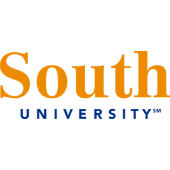
#34: South University
Established in 1899, South University offers nine distinct fields of study across its ten campus locations and a robust online platform. The university’s High Point Off-Campus Instructional Site conducts both a prelicensure BSN program and an MSN degree with a family nurse practitioner emphasis. Both offerings are accredited by the Commission on Collegiate Nursing Education. The MSN curriculum integrates advanced health sciences knowledge and skills, equipping students to deliver community-based primary healthcare to individuals and families across the lifespan. The BSN program prepares graduates to sit for the National Council Licensure Examination in order to pursue initial licensure as a registered nurse. Since the program’s inception, BSN students have scored a solid 86% first-time NCLEX pass rate.
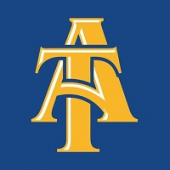
#35: North Carolina A&T State University
North Carolina A&T State University’s School of Nursing sits within the College of Health and Human Sciences. Students can earn a BSN degree through three entry options: traditional, accelerated, and completion. The traditional BSN is designed for new freshmen and transfer students, while the accelerated program is for students who already possess a non-nursing bachelor’s degree. Both pathways prepare students for initial RN licensure. The school’s BSN graduates have achieved an 84% first-time pass rate on the NCLEX licensure examination over the past seven years, including a stellar 97% pass rate in 2019. A&T’s BSN completion pathway is for RNs with an associate degree who wish to complete their baccalaureate education.

#36: Wake Technical Community College
Wake Technical Community College’s Martha Mann Smith School of Nursing offers a prelicensure ADN program with multiple entry points. The curriculum provides simulated learning in a state-of-the-art laboratory, as well as clinical experiences at a number of healthcare sites throughout Wake County. Students with no nursing experience can pursue a traditional two-year course of study, while licensed practical nurses may apply for advanced placement. The program graduates 100-150 new nurses annually, and these students perform extremely well on their licensure examinations. WTCC nursing students have averaged a phenomenal 96% first-time pass rate on the NCLEX-RN exam over the past decade. Wake Technical Community College also recently launched a practical nursing diploma program that prepares students for entry-level, evidence-based clinical practice in a broad range of structured healthcare settings. Graduates are eligible to take the NCLEX-PN licensure examination and, upon successful completion, to pursue employment as a licensed practical nurse.
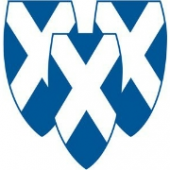
#37: St. Andrews University
St. Andrews University traces its roots back more than a century to the 1896 founding of Flora Macdonald College. The university features seven undergraduate departments and divisions, as well as two graduate programs. In the Fall 2020 semester, St. Andrews launched its first nursing degree program, a bachelor of science in nursing. The BSN program offers both a traditional pathway that prepares students for initial licensure and an RN-to-BSN pathway that enables nurses with a diploma or associate degree to complete their baccalaureate education. SAU’s BSN curriculum is grounded in Nola J. Pender’s Health Promotion Model and interweaves the metaparadigm nursing concepts of health, person, environment, and learning.
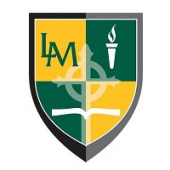
#38: Lees-McRae College
The May School of Nursing and Health Sciences at Lees-McRae College offers a prelicensure BSN program and an online RN-to-BSN pathway. Students engage in lab experiences at the LMC Hart Simulation Center, which has 3G wireless human simulators and a simulated inpatient hospital unit complete with a replicated efficiency apartment, exam tables, and hospital beds. Students complete 25% of their clinical time in the center, which has been designated a Gaumard premier site – one of only 33 such sites in the United States.

#39: Wilson Community College
Wilson Community College offers more than 75 associate degree, diploma, and certificate programs, in addition to more than 300 continuing education courses. Aspiring nurses can pursue either a practical nursing diploma or an associate degree that offers two tracks (traditional and LPN-to-ADN transition). The nursing curriculum combines intensive nursing coursework, simulation exercises, laboratory experiences, and clinical rotations at local healthcare facilities. Graduates are extremely well prepared for their respective licensure examinations. For example, Wilson Community College’s LPN students have averaged an extraordinary 98% first-time NCLEX-PN pass rate over the past eight years. During that same period, ADN students achieved an 88% first-time NCLEX-RN pass rate.
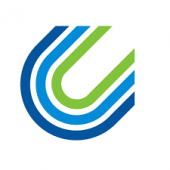
#40: Cleveland Community College
The nursing program at Cleveland Community College has two options for aspiring nurses: a practical nursing diploma and a professional nursing associate degree. The LPN diploma emphasizes individualized nursing care, participation in an interdisciplinary team, evidence-based practice, and quality improvement. The program graduates approximately a dozen students per year, and virtually all of these individuals pass the NCLEX-PN licensure exam on their first try. The ADN program is a member of the Foothills Nursing Consortium along with Isothermal Community College and McDowell Technical Community College. The ADN curriculum builds upon the domains of healthcare, nursing practice, and the holistic individual with coursework that spans family health, illness, and nursing transitions.
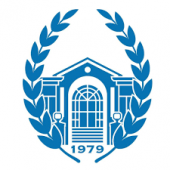
#41: Brunswick Community College
Brunswick Community College’s Nursing and Allied Health Department offers both LPN and ADN programs. The one-year LPN curriculum focuses on the assessment, planning, implementation, and evaluation of nursing care. Graduates can land entry-level positions in clinics, hospitals, long-term care facilities, and physicians’ offices. LPN students have scored a perfect 100% first-time pass rate on the NCLEX-PN licensure exam for an incredible eleven consecutive years. The two-year ADN curriculum emphasizes interdisciplinary care, evidence-based practice, quality improvement, and informatics. Graduates can pursue a range of employment settings including acute, chronic, extended, industrial, and community healthcare. ADN students have averaged a stellar 94% first-time pass rate on the NCLEX-RN licensure exam over the past decade.
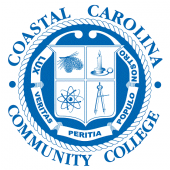
#42: Coastal Carolina Community College
Launched in 1965 as the Onslow Industrial Education Center, Coastal Carolina Community College has grown to serve approximately 1,800 fulltime and almost 2,000 parttime undergraduate students today. The college offers several nursing pathways including a practical nursing diploma, a traditional associate of applied science (AAS) degree in registered nursing, and an AAS transition program that awards advanced standing to licensed practical nurses. Both the LPN diploma and AAS degree are limited-enrollment programs, and both are candidates for initial ACEN accreditation. Both programs also boast excellent student outcomes. Coastal’s AAS degree program graduates approximately thirty students annually, with a 90% NCLEX-RN pass rate over the past seven years. The college’s LPN diploma program graduates approximately twenty students annually, with a stellar 94% NCLEX-PN pass rate over the past seven years.
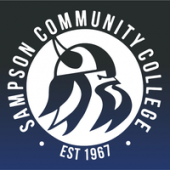
#43: Sampson Community College
Sampson Community College offers several prelicensure nursing pathways including an LPN diploma, a traditional two-year associate degree in nursing, and an LPN-to-ADN bridge option. Across all programs, coursework on healthcare, nursing practice, and the holistic individual is integrated with clinical experiences at a diverse range of local facilities. Graduates consistently perform strongly on their nursing licensure examinations. Over the past seven years, ADN students averaged a 91% first-time pass rate on the NCLEX-RN exam, while LPN students scored a phenomenal 98% first-time pass rate on the NCLEX-PN exam. Sampson Community College also participates in the state’s Regionally Increasing Baccalaureate Nurses program by partnering with the University of North Carolina Wilmington.
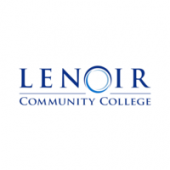
#44: Lenoir Community College
Lenoir Community College is one of the oldest institutions in the North Carolina Community College System. The college’s Health Science Program offers an LPN diploma and several pathways to an associate degree in nursing (traditional, LPN-to-ADN, paramedic-to-ADN). Graduates of the LPN program have enjoyed a 100% first-time pass rate on the NCLEX-PN licensure examination for eleven consecutive years. Over the same time period, ADN graduates have averaged a 90% first-time pass rate on the NCLEX-RN licensure examination. In addition to these prelicensure programs, Lenoir Community College participates in the state’s Regionally Increasing Baccalaureate Nurses program through its collaboration with East Carolina University.

#45: Mitchell Community College
Mitchell Community College has provided education and training programs to Iredell County for more than 150 years. For aspiring nurses, Mitchell offers a nurse aide certificate and an associate degree in professional nursing. CNA students can take additional training courses such as clinical medical assistant, phlebotomy, and medication aide to enhance their skill set. Graduates take the state certification exam in order to be listed on the North Carolina Nurse Aide Registry. The ADN program has both a traditional option and a paramedic-to-RN bridge pathway. Both tracks prepare students to pass the NCLEX-RN licensure examination and to pursue employment in chronic, acute, community, and industrial healthcare facilities. Mitchell Community College graduates 30-40 ADN students annually. Over the past eight years, these graduates have scored an outstanding 97% first-time NCLEX pass rate.

#46: Central Piedmont Community College
The programs at Central Piedmont Community College are designed for students seeking an associate degree, a seamless path to a bachelor’s degree, and/or a fast track to employment in twelve career fields. The Christa A. Overcash Associate Degree in Nursing is the oldest program of its kind in the entire state. This 69-credit-hour curriculum is approved by the North Carolina Board of Nursing and accredited by the Accreditation Commission for Education in Nursing. Coursework covers important topics like family health, developmental psychology, and complex health concepts. Graduates are eligible to sit for the NCLEX-RN licensure examination and, upon successful completion, to pursue employment in a variety of healthcare settings. Over the past decade, the college’s ADN students have averaged a stellar 95% first-time NCLEX-RN pass rate. Central Piedmont Community College also recently launched a three-semester practical nurse diploma that prepares graduates to take the NCLEX-PN licensure examination. Coursework teaches students to provide safe, individualized entry-level care through evidence-based practice, quality improvement, and informatics.
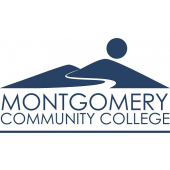
#47: Montgomery Community College
Montgomery Community College has programs for students seeking technical training or a pathway to a degree at a four-year institution. Among the college’s technical training programs is a 34-semester-hour practical nursing diploma that features 480 clinical hours at area hospitals and healthcare facilities. Students learn to administer medications, check vital signs, perform assessments, and help patients with day-to-day activities. The LPN program’s 20-30 annual graduates are well prepared for the NCLEX-PN licensure exam, boasting a 93% first-time pass rate over the past eight years. Montgomery Community College also holds initial approval from the North Carolina Board of Nursing to conduct an associate degree in nursing. This 70-semester-hour program prepares students for the NCLEX-RN licensure exam. ADN graduates can enjoy seamless transition into the BSN program at a dozen state universities, thanks to the college’s extensive suite of transfer agreements.
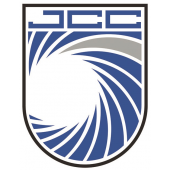
#48: Johnston Community College
Occupying a 175-acre campus, Johnston Community College boasts state-of-the-art facilities amid picturesque pines, colorful azaleas, and scenic ponds. The college’s ADN program features a two-year, five-semester curriculum with a competitive admissions process. Approximately 30-50 new students are admitted in each class; most individuals matriculate in the fall, with a limited number of advanced placement seats available. These students have performed exceptionally well on the NCLEX-RN licensure examination, scoring a 95% first-time pass rate over the past decade. Thanks to North Carolina’s uniform articulation agreement, JCC graduates may seamlessly transition into the RN-to-BSN program at nearly a dozen public universities, including the UNC System’s campuses in Charlotte, Greensboro, Pembroke, and Wilmington. Johnston Community College also recently launched a one-year, three-semester practical nursing program that prepares graduates for employment in hospitals, long-term care facilities, clinics, home healthcare, and physician’s offices. Coursework builds upon the domains of healthcare, nursing practice, and the holistic individual.
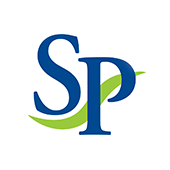
#49: South Piedmont Community College
South Piedmont Community College holds transfer agreements with six major universities that provide students with access to service learning opportunities, study abroad programs, and guaranteed partnerships. Among the school’s health and sciences programs are nurse aide, practical nursing, and registered nursing pathways that prepare students for positions in a variety of healthcare environments. The college’s LPN and ADN programs both hold full approval from the North Carolina Board of Nursing. Both programs are selective, with roughly a dozen LPN graduates and approximately 25 ADN graduates annually. Both programs have also prepared students admirably for the NCLEX licensure examination, boasting a 95% first-time NCLEX-PN pass rate and an 89% first-time NCLEX-RN pass rate, respectively, over the past eight years.
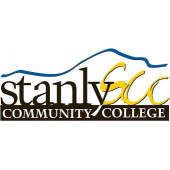
#50: Stanly Community College
Stanly Community College offers degree, diploma, certificate, and continuing education programs across five convenient locations. Some programs are even offered in a hybrid format. The college’s nursing options include a nurse aide certificate and two associate degree pathways (generic and LPN bridge). The nurse aide certificate program covers personal care, vital signs, and therapeutic activities. Upon completion of 18 credit hours, CNA graduates are prepared to take the North Carolina Nurse Aide exam. The Annie Ruth Kelley ADN curriculum explores advanced topics like health systems, developmental psychology, and holistic health. ADN graduates are prepared to take the NCLEX-RN licensure exam. Impressively, they have averaged a 94% first-time NCLEX pass rate over the past eight years.
